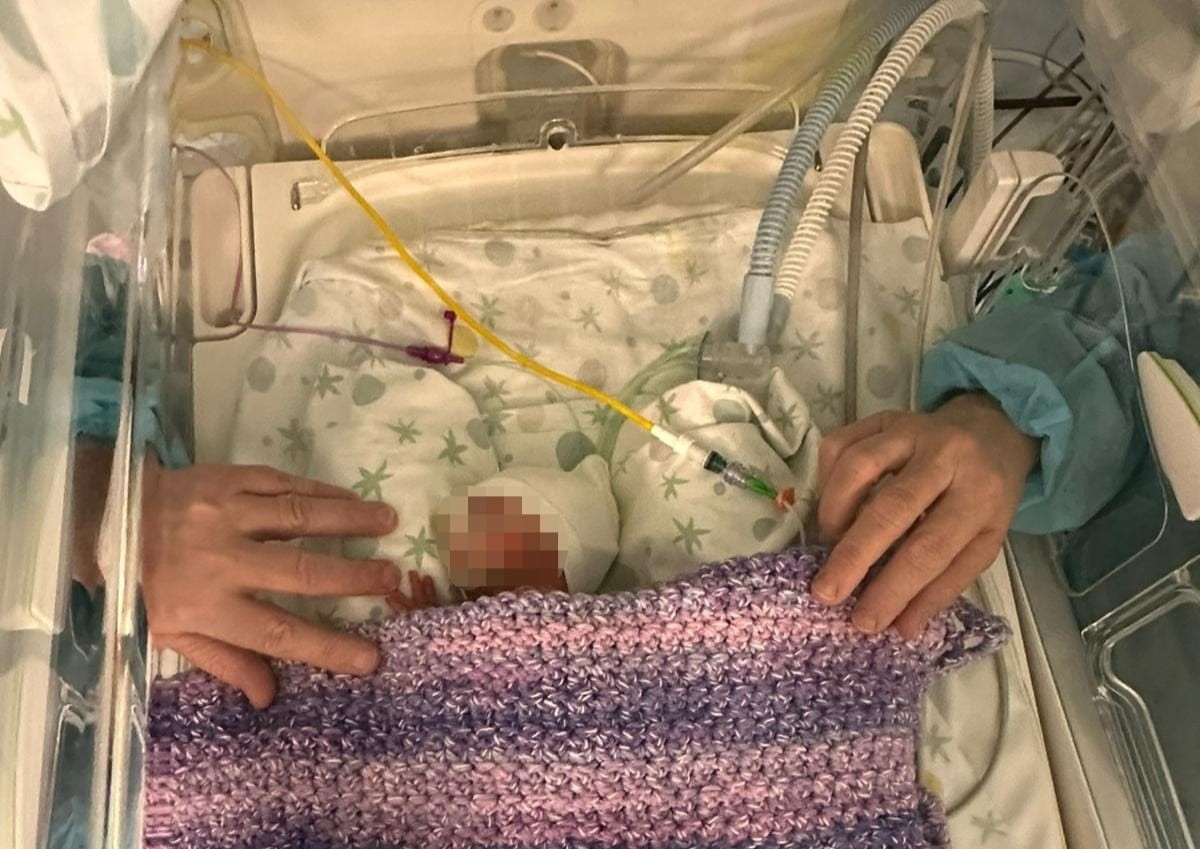Grandfathers, grandmothers, little brothers and sisters were able to visit their loved ones, the little guests of the Neonatal Intensive Care Unit of the Di Venere Hospital. It happened yesterday, November 17, the date on which World Prematurity Day occurs and when hospitals equipped with NICUs and the main monuments of the cities are lit up in purple, the color of prematurity, to shine a light on the meaning of prematurity for little ones and their families.
A real day of special visits for the little ones. Doctor Flavia Petrillo, who directs the Di Venere NICU, this year wanted to extraordinarily open the doors of her facility to grandparents and siblings of hospitalized newborns, precisely because the care of these newborns must be centered on the family. Allowing grandparents and siblings (taking all due caution and precautions) to be an immediate part of the children’s lives can in fact have an important impact on the whole family. Grandparents and siblings see the children sometimes 3 or 4 months after birth (this is how long the hospital stay of a very premature baby can last) and the fracture that is created in these important relationships is not easy to repair over time. Therefore, making grandparents, little brothers and sisters feel that they are part of the life of premature newborns closes an important and vital circle for the whole family.
What specific activities or support systems does the NICU offer to engage family members during World Prematurity Day celebrations?
Thank you for joining me today for this special interview about World Prematurity Day celebrations at the Di Venere Hospital’s Neonatal Intensive Care Unit (NICU). I’m thrilled to have two distinguished guests with us: Dr. Flavia Petrillo, the NICU’s director, and a grandmother whose grandchild was treated in the unit last year. Dr. Petrillo, could you tell us more about why you decided to open the doors of the NICU for family members during World Prematurity Day?
Dr. Petrillo: Of course! World Prematurity Day is an important event where we raise awareness about the global impact of premature births and the challenges that families face. In our NICU, it’s not just the babies who need support; the entire family is affected as well. By allowing grandparents and siblings to visit, we aim to strengthen their relationships with the newborns and provide them with the critical emotional support they need during this difficult time. It’s also an opportunity for us to educate families about the importance of including them in the care process and how their presence can have a positive impact on their loved ones’ recovery.
Grandmother, as someone who experienced the NICU firsthand, can you share your thoughts on how visits from family members affected your grandchild’s recovery and your own experience as a family member?
Grandmother: Visiting my grandchild in the NICU was a nerve-wracking experience, but it was also comforting to know that they were surrounded by loved ones. It was heart-warming to see the nurses and doctors interacting with not only my grandchild but also with us, taking the time to explain everything that was happening. My presence allowed my grandchild to feel more secure and less alone, and our family felt more connected during this challenging time. I think it’s crucial for families to be involved in the care process, especially when it comes to premature babies who may require additional support.
Dr. Petrillo, could you give us some insights into the role of family in the care process for premature babies? What kind of support do you recommend for families who have a baby in the NICU?
Dr. Petrillo: Family invol


